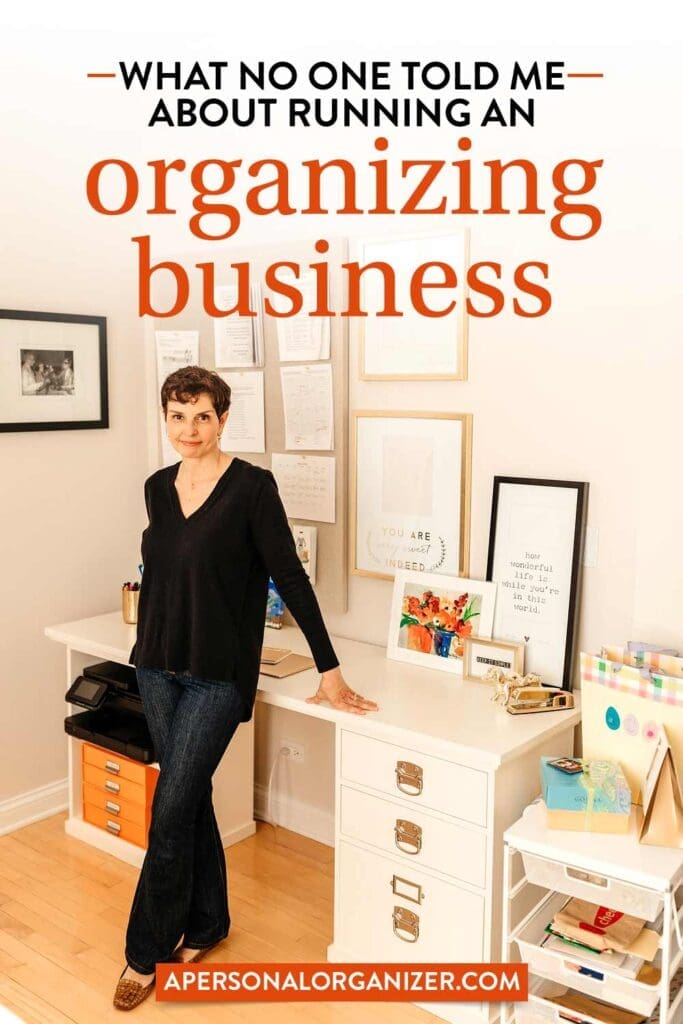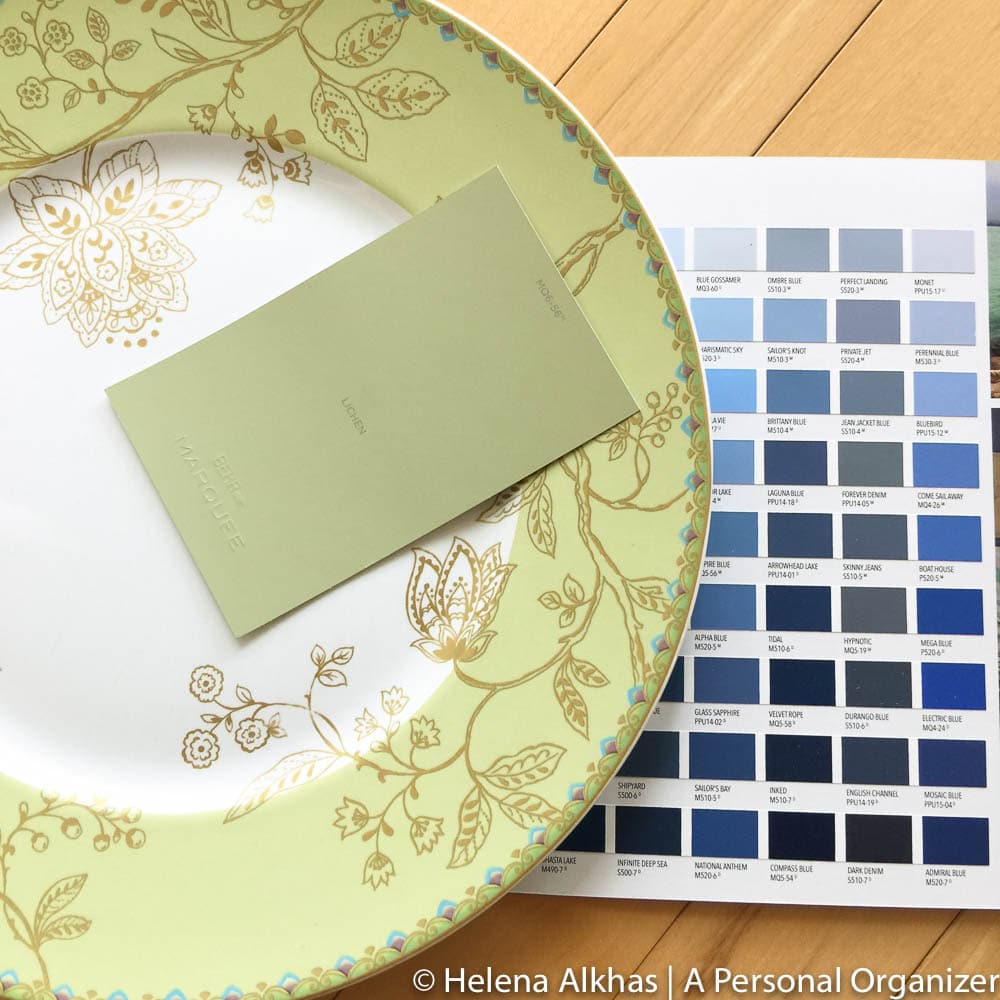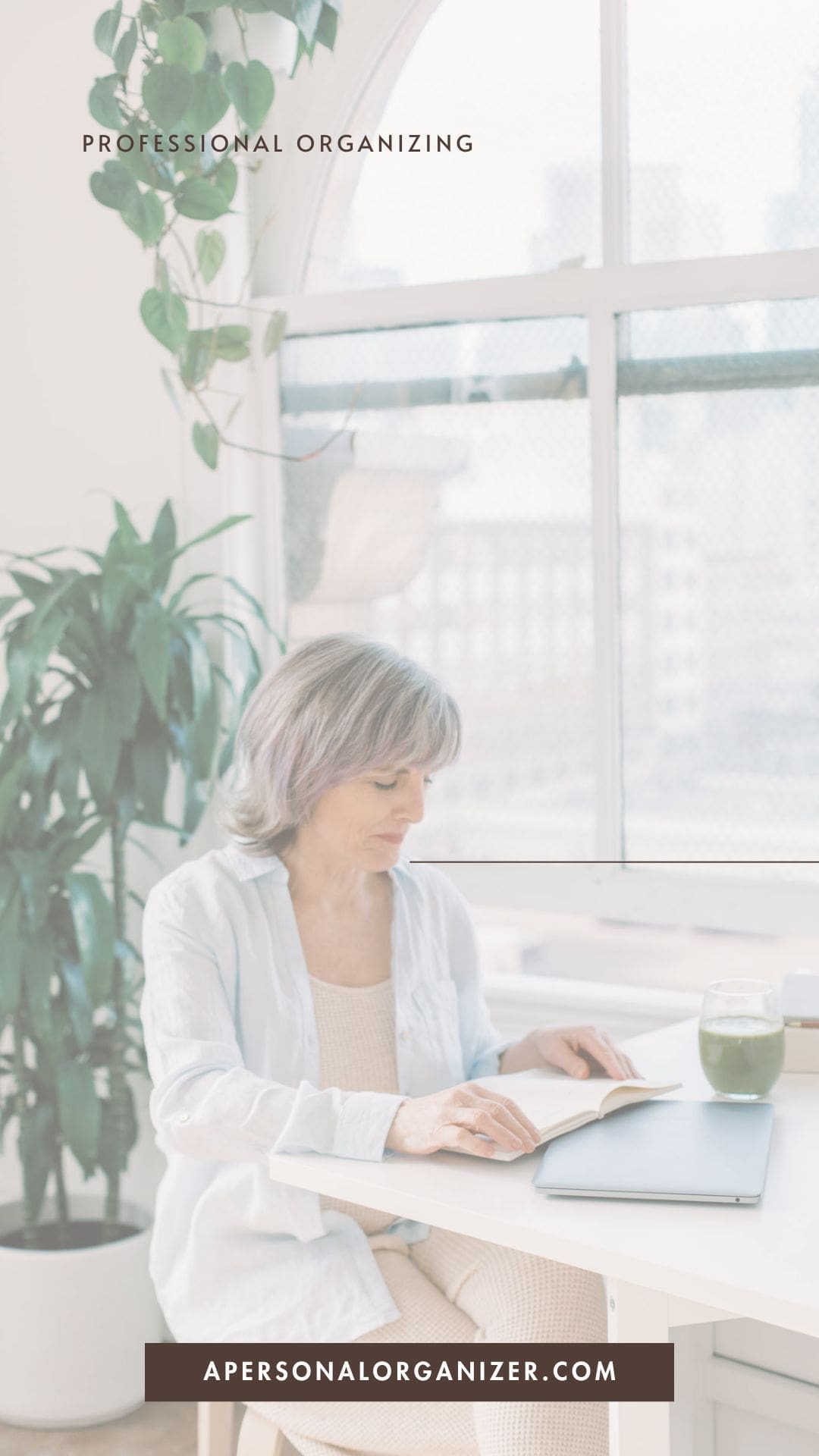Lessons Learned In 10 Years As A Professional Organizer
After ten years as a professional organizer and running a small organizing business, all while moving to three different States as a Navy spouse, I can say I have learned a thing or two.
I started my business in 2010 after a fellow mom asked me to help her with her clutter. In the process of organizing her home, I found an estimate of a local professional organizer, and this is how I learned that what I loved to do – organizing – was a professional activity.

Armed with a passion for organizing and a desire to return to the workforce after 9 years as a stay-at-home mother, I joined the national association, our local chapter, and started to subcontracting for local colleagues. In less than a month, I was working with clients and a team.
Many of us in this industry, people who love organizing and want to make a difference in our clients’ lives, enter this activity believing all we will do is organize our “core activity.” But that is nothing further from the truth.
Put Your Entrepreneur Hat On – A love for organizing won’t be enough
As soon as you officially form your business, you will realize that you need a plan to attract clients who will pay you to do what you love. You’ll need to learn new skills, including marketing, networking, accounting, managing clients and your time, estimating and managing projects, sourcing products and materials, and determining the type of insurance to purchase, among others.
When I look back, I am sure my best investment of time and money in my first year of having an organizing business was made by taking NAPO and ICD classes and joining my local chapter. I also took countless training sessions and earned certifications from top digital marketers.
These classes gave me a map for my business, while joining the local NAPO chapter gave me a sense of professional community, standards to follow, and a human connection. These relationships will last for years, and these will be your “peeps,” the colleagues you go to when you have a question or need a helping hand.
Prepare For Longevity
When we are young, we believe we will live forever. We don’t know what pains and aches are. We sleep through the night, enjoy total health, and don’t have hot flashes. But once age -and what comes with it- starts knocking at your door, you will begin reviewing what you can do and what you’re willing to do.
Back in 2014, I was working intensively, around 5-6 days a week, and that’s when I started feeling such pain in my joints that I was having a difficult time climbing the stairs of our house. I was only in my early forties, but the intense physical demands of our work were already starting to take their toll on me.
That was the time I understood I needed to plan for the future if I wanted to do what I love for the long haul.
It’s fair to say that most of us enter this industry through residential organizing. This environment requires lots of stepping, climbing, carrying heavy bins and boxes, hauling donation bags, working in dusty environments, and handling an infinite number of items. All this takes a toll on our bodies if we’re not careful.
If you’re young and new to the industry, consider how you will protect yourself from the intense physical activity that is part of our work, and start paying attention to all other areas and ways you can offer organizing services.
There are many areas of professional organizing that are “softer,” such as digital organizing, photography, document management, teaching, training, and consulting for both clients and new professional organizers.
Whether you are going through your first years in business or already hitting the 5-10 year mark, consider how you will extend your professional life while maximizing the experience you have accumulated so far.
Use All Your Assets – Organizing Is Only One Of Them
When we show up to an organizing appointment, our clients might believe that we are solely equipped with organizing skills. However, what I have observed is that our previous professional education, life experiences, and the life skills and perspectives our cultural and religious backgrounds provide also inform the way we can bring value to our clients.
Here are a couple of examples:
A coaching client of mine is a Seventh-day Adventist and observes the Shabbat. She had to learn to organize her family life around that important weekly event and find clients who were open to working on Sundays, but not on Saturdays.
Another important observation of hers was that many of her friends from church were struggling to organize themselves around their religious practices, which led her to create a training and a planner.
Takeaway: If you are religious and observe rituals and practices and have learned to organize your life around them, there is an entire community of people who also need that information.
The same applies to your previous professional experience. A nurse working at a hospital may have valuable insight into the needs of patients and their families. When someone is undergoing treatment or suffers from a chronic condition, organizing the household, the routines, the medical bills, and related documents can become an overwhelming part of their lives. As a professional organizer, you have the training and experience to provide specialized services.
Create multiple sources of income – online and offline
Back in 2011, when I created my first website, all I wanted was a place for potential clients to find me. However, as I began taking training in online marketing, I realized the potential this space held as a possible source of income.
Over the years, I have utilized advertising and affiliate marketing to generate ongoing revenue and offer digital products, online training, and consulting services to colleagues worldwide.
You may want to continue doing hands-on organizing with clients for as long as possible, but that doesn’t exclude the possibility of creating products you can offer online, giving many others the opportunity to learn the organizing skills that come so naturally to you.
Other ways to create multiple sources of income include selling physical products, giving speaking engagements, becoming an inventor, or writing a book (or two!).
We have fabulous colleagues who have expanded their businesses through these channels, and they are proof that it’s possible.
Finally, I learned that while our passion for organizing never dies, our love for our business may fade from time to time. For me, this happened when I felt I had hit a plateau or when I stopped learning new things or applying my skills.
As a lifelong learner, I yearn for new experiences and opportunities to challenge myself. Know how you will find the food to keep yourself engaged and curious about your work.
So, whatever you do, keep learning, keep engaging, and look for the next chapter. Professional organizing can take you places you never imagined!
I hope this post provides you with ideas for planning a thriving professional organizing career.





